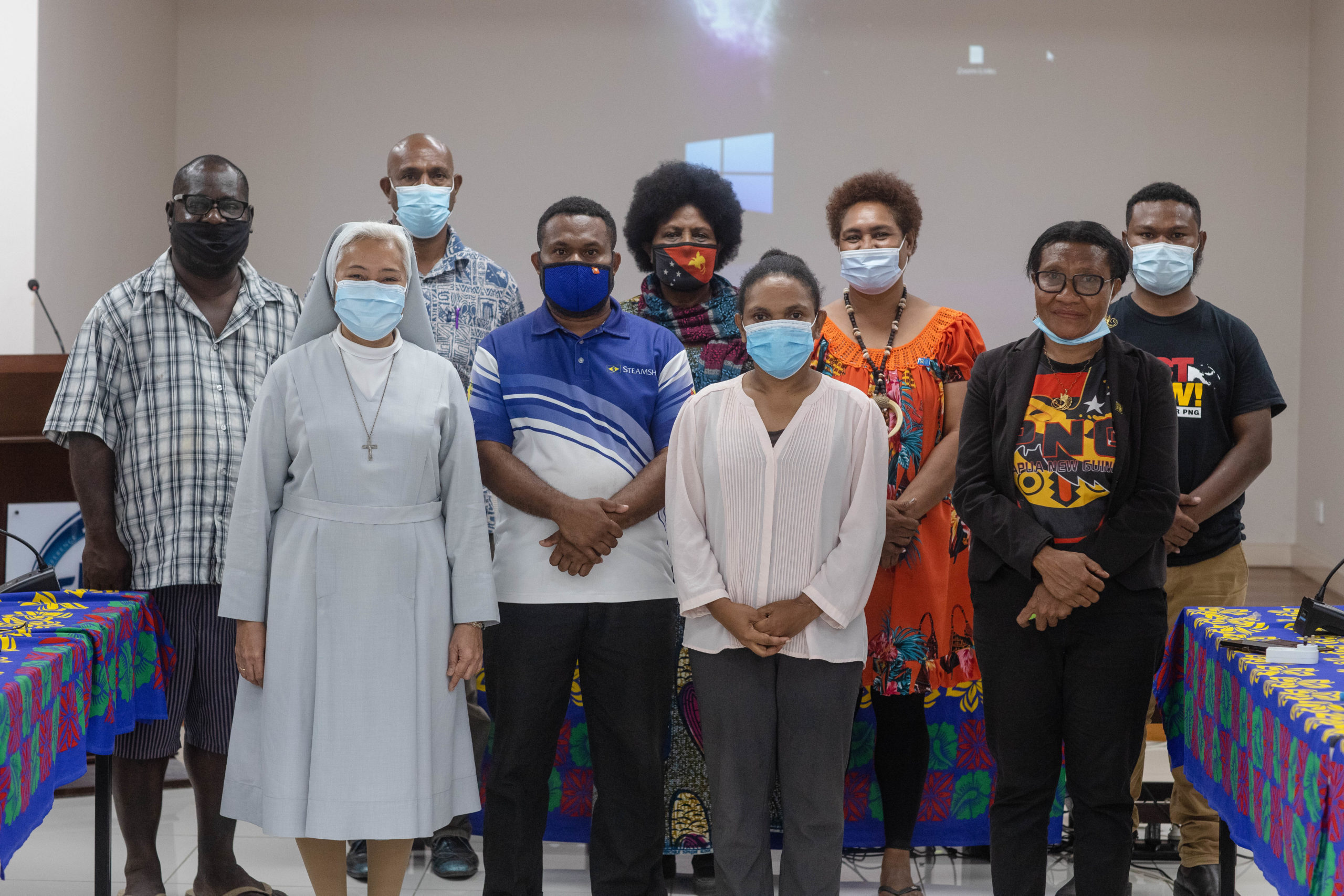
As part of the lead up advocacy activities for the Universal Periodic Review (UPR) of Papua New Guinea (3rd Cycle), the International Catholic Center of Geneva (CCIG) supported locally-based Civil Society Organizations (CSOs) participation in the UPR Info Pre-sessions on 6 October, 2021. The PNG Tribal Foundation, Magna Carta PNG Inc. and Papua Native Landowners Association Inc., members of the local NGO coalition for the UPR of PNG supported by the CCIG, presented the situation of children, women, persons with disabilities and the environmental protection together with relevant recommendations for consideration to Member States. Due to persisting health protocols, the Pre-session was conducted through a virtual format. The concerned CSOs had prepared pre-recorded videos and participated in the live question and answer session with attendant Recommending States.
The Pre-sessions are organized by the UPR Info in coordination with various civil society organizations and the participation of State Delegations. The purpose of the Pre-sessions is to offer Civil Society Organisations (CSOs) and National Human Rights Institutions (NHRIs) an opportunity to brief permanent delegations on the human rights situation in the States under Review. They provide space for civil society to engage directly in a dialogue with States, ensuring that their suggestions and recommendations are taken into consideration by Recommending States in advance of the Working Group.
As representative of the PNG Tribal Foundation, Ms Yanamlyn YANA spoke of the gaping lack of women representation in politics and decision-making thus the need for the amendment of the Organic Law on the Integrity of Political Parties and Candidates and providing support to women candidates. She also tackled persisting domestic violence against women and violence related to accusations of sorcery leading to torture and even death of women and girls. Strong recommendations were also made to ensure that more children will have access to education through tuition fee subsidy policies as well as provision of adequate resources to schools throughout the country. Yanamlyn also cited the high incidence of illness and diseases for children from the rural areas despite the Child Health Policy and Plan 2009-2020. Hence, there is a need to improve the accessibility of healthcare services for children and the provision of adequate health facilities nationwide. Finally, she underscored the increasing rate of violence against children due to lack of government implementation of the Lukautim Pikinini Act (2015) and the underfunding of the justice system.
Ms. Shirley Kaupa, representing Magna Carta PNG Inc., tackled key issues on the Rights of Persons with Disabilities and gaps in the implementation of the recommendations addressed to PNG in 2016 by Canada, Ghana and Myanmar. She stressed the need for relevant legislative and policy frameworks in order to protect the rights of persons with disabilities. Children, in particular, do not have access to inclusive education because of structural accessibility issues. Also, only five out of 24 provinces are engaged in disability learning. Furthermore, she presented the on-going discriminations and stigma that they face every day in PNG, with women and girls with disabilities seen as most vulnerable and being often abused by close relatives. The Covid-19 pandemic provoked an increase of number of cases including documented violence against persons with disabilities by police officers. Finally, she pointed out the need for PNG to ensure the participation of person with disabilities in public affairs by guaranteeing that they are adequately enrolled in the voters’ registry and creating a safe and enabling environment to vote and run for office.
The Papua Native Landowners Association, Inc. through the representation of Ms. Lucielle Paru completed the intervention of the PNG-CSO coalition. She tackled environmental issues on which 6 States made recommendations during the previous cycle. Despite an existing legal framework like the Environment Act 2000, many violations are still being reported with regards to mining and logging activities. She cited clear negligence on the part of the Government and the companies involved in terms of failure to carry out adequate consultations and facilitating the participation of affected population and promoting awareness campaign on the environmental and social impacts. Of note were the cases regarding the sand-mining company Niugini Sands and Frieda River Gold and Copper Project. She also presented how 70% of logging activity in PNG is illegal, unsustainable and mainly affects local indigenous communities. Since 2014, PNG Government has failed to put an end to illegal logging grants and return the land to the Indigenous Natives.
Advocacy efforts are now underway to further convince individual Member States to take up the recommendations presented during the virtual pre-session. This activity is taking place within the frame of a larger scale project developed by the CCIG, the Dominicans for Justice and Peace, ERI and FMSI together with a coalition of sixteen civil society organisations based in Papua New Guinea. Started in December 2020, this project aims at strengthening the capacity of local civil society to report, monitor and follow-up the most pressing issues in Papua New Guinea through the Universal Periodic Review. The final activity of the project will consist in the organization of a side event following the UPR session in November to advocate for acceptance of the recommendations by Papua New Guinea.
You can access the videos of the statements delivered by CCIG local partners at the UPR pre-session in the PNG Project webpage.